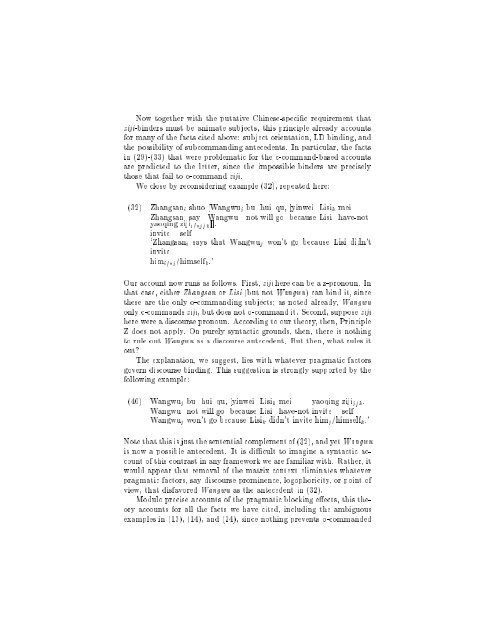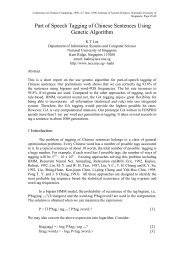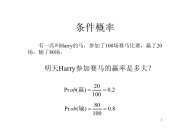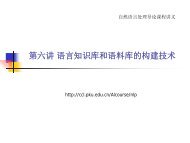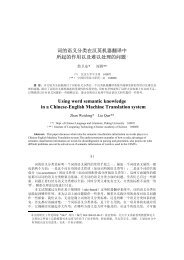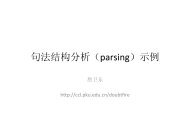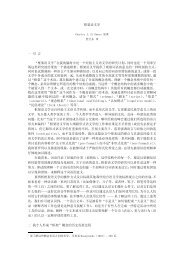A New Perspective On Chinese ZIJI
A New Perspective On Chinese ZIJI
A New Perspective On Chinese ZIJI
You also want an ePaper? Increase the reach of your titles
YUMPU automatically turns print PDFs into web optimized ePapers that Google loves.
Now together with the putative <strong>Chinese</strong>-speci c requirement that<br />
ziji-binders must be animate subjects, this principle already accounts<br />
for many of the facts cited above: subject orientation, LD binding, and<br />
the possibility of subcommanding antecedents. In particular, the facts<br />
in (29)-(33) that were problematic for the c-command-based accounts<br />
are predicted to the letter, since the impossible binders are precisely<br />
those that fail to o-command ziji.<br />
We close by reconsidering example (32), repeated here:<br />
(32) Zhangsani shuo [Wangwuj bu hui qu, [yinwei Lisik mei<br />
Zhangsan say Wangwu<br />
yaoqing zijii= j=k]].<br />
not will go because Lisi have-not<br />
invite self<br />
`Zhangsani invite<br />
says that Wangwuj won't go because Lisi didn't<br />
himi= j/himselfk.' Our account now runs as follows. First, ziji here can be a z-pronoun. In<br />
that case, either Zhangsan or Lisi (but not Wangwu) can bind it, since<br />
these are the only o-commanding subjects as noted already, Wangwu<br />
only c-commands ziji, but does not o-command it. Second, suppose ziji<br />
here were a discourse pronoun. According to our theory, then, Principle<br />
Zdoesnotapply. <strong>On</strong> purely syntactic grounds, then, there is nothing<br />
to rule out Wangwu as a discourse antecedent. But then, what rules it<br />
out?<br />
The explanation, we suggest, lies with whatever pragmatic factors<br />
govern discourse binding. This suggestion is strongly supported by the<br />
following example:<br />
(40) Wangwuj bu hui qu, [yinwei Lisik mei yaoqing zijij=k. Wangwu not will go because Lisi have-not invite self<br />
Wangwuj won't go because Lisik didn't invite himj/himselfk.' Note that this is just the sentential complement of (32), and yet Wangwu<br />
is now a possible antecedent. It is di cult to imagine a syntactic account<br />
ofthiscontrast in any framework we are familiar with. Rather, it<br />
would appear that removal of the matrix context eliminates whatever<br />
pragmatic factors, say discourse prominence, logophoricity, orpointof<br />
view, that disfavored Wangwu as the antecedent in (32).<br />
Modulo precise accounts of the pragmatic blocking e ects, this theory<br />
accounts for all the facts we have cited, including the ambiguous<br />
examples in (13), (14), and (24), since nothing prevents o-commanded


